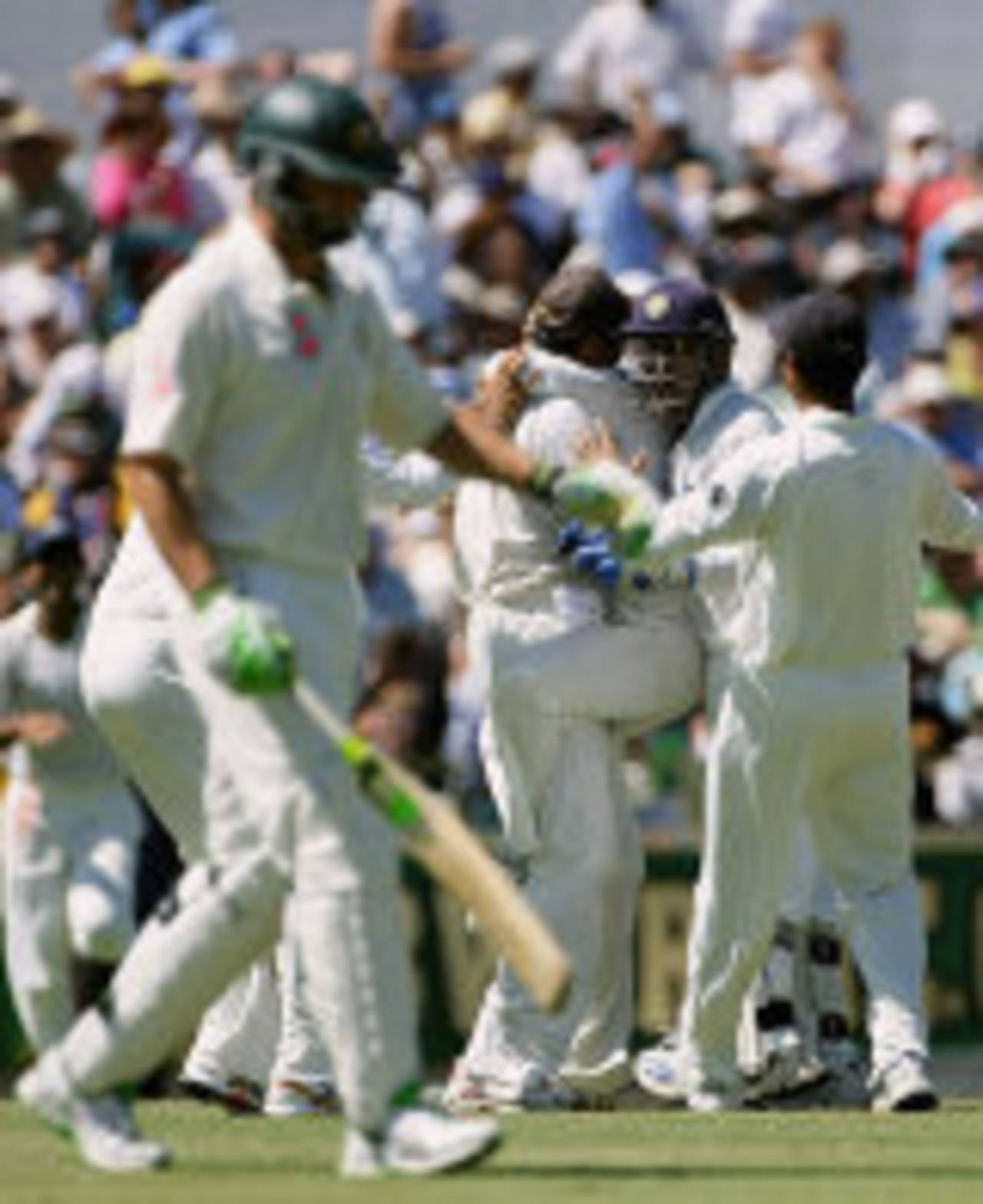Keep walking
They miss out on camaraderie but cop all the tension and aggravation out in the middle
Samir Chopra
25-Feb-2013

Getty Images
In more formal settings, i.e., in an academic journal article, I've helped in constructing an argument whose conclusion went roughly like this: walking is a nice thing to do, but it's not bad if you don't do it. But there is a cricketing setting where you must walk, and this holds true, I think, even in 'hard-but-fair' cricket cultures. That setting is park cricket.
A reminder on how park cricket works when it comes to umpiring: the umpires are drawn from the batting side, and can be changed during an innings; the bowling side agrees, implicitly, to abide by their decisions. When the side bowling gets to bat, they supply their own umpires and soon. The fabric of a park game, and indeed, the entire competition if there is one, holding together is dependent on the bowling side not losing respect for the umpires and this convention continuing to work. When the bowling side starts to think umpires aren't being honest (and not just incompetent), accusations of cheating fly and the game quickly degenerates into acrimony and recrimination (retaliation by bad umpiring just makes things worse; in cricket, like life, revenge doesn't quite bring us the rewards we might like). Unlike international cricket it is quite easy for a park game to end because of a team walking off in a huff. But by and large this does not happen; umpires do their job reasonably well and the world of recreational cricket moves along. Indeed, recreational cricket would not survive if umpires could not be called upon from the batting side. In some lower-level settings it might be possible to call upon neutrals consistently but this is rare.
It should be clear why batsmen should walk in this cricketing setup. Umpires are doing a demanding, required job, and they can clearly be accused of self-interest when decisions go against the bowling side as they aren't neutrals in any sense. The umpires stand out in the middle, they don't relax on the grassy sidelines with the rest of their batting mates as they banter, score, drink beer, and relax. They miss out on camaraderie but cop all the tension and aggravation out in the middle. Under these circumstances, the umpires must be rendered all assistance possible. My feeling is that the following thesis underwrites park cricket conventions about walking: when umpires are not neutrals and are your own team-mates, you must help them do their job by walking when you know you are 'out'.
I hesitate to describe this convention as universal, because I've not played cricket all over the world, but it seems to me batsmen generally co-operate in these settings, and those that don't are not regarded favourably (I welcome clarification and education in this regard). When an edge flies into the wicketkeeper's gloves, batsmen walk. Those that stand around glowering and making faces when given out LBW run the risk of a dressing down from their team-mates. The umpire is your mate; he's doing a difficult job, exposing himself to the chatter of opponents; it behooves you to help him out. To be someone who gives his team-mates a hard time under the circumstances is not a very clever move in lots of ways; you can unravel your own team's fabric for one.
This leads me to my further claims: a) I suspect the not-walking convention comes about in settings where the umpires are not your team-mates i.e., in more organized or higher-level games; b) Not-walking is not universally accepted, even in cultures whose cricketers believe in not-walking in international or state-level cricket. It might be that not-walking even happens in the settings I describe, but I've not seen it other than as a species of behaviour which was not approved of. Walking is supererogatory in international cricket; in park cricket it is obligatory. This is a distinction, I think, which most cricketers recognise. And I think it complicates the easy lines we like to draw between different cricketing contexts and cultures when it comes to the ethics of practices like walking.
Samir Chopra lives in Brooklyn and teaches Philosophy at the City University of New York. He tweets here